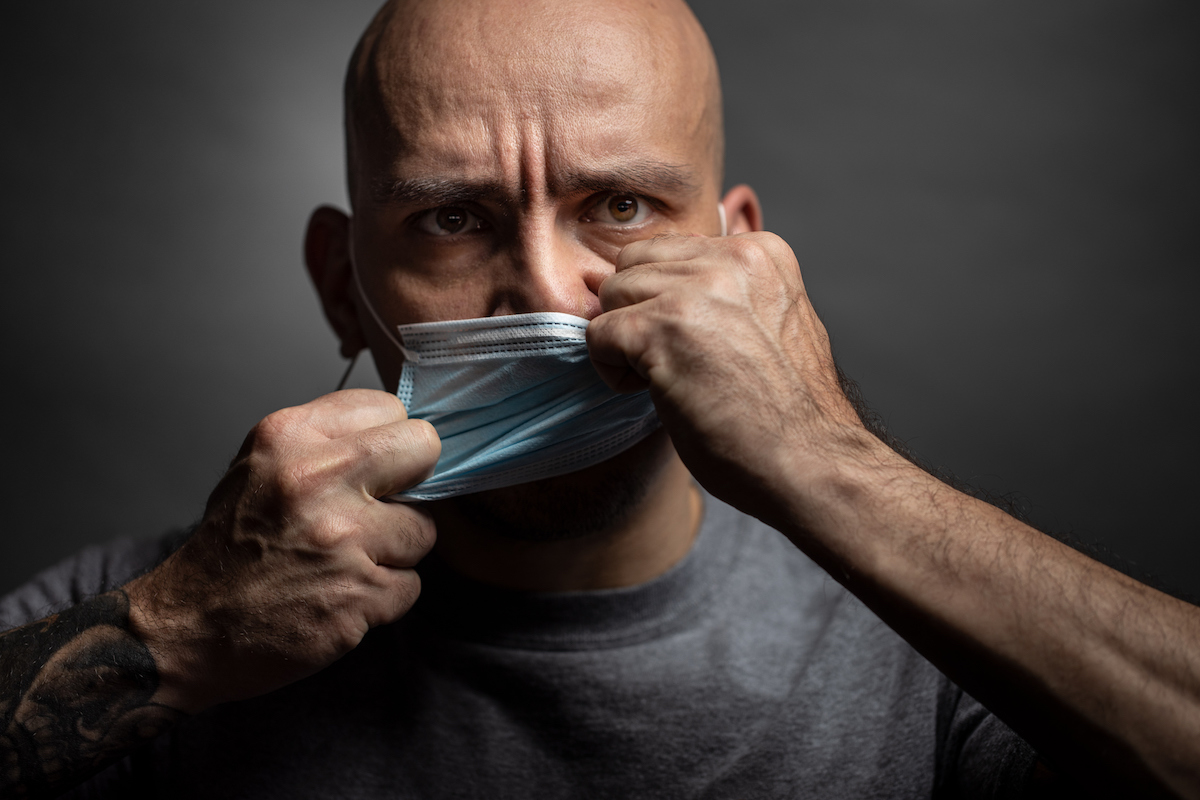<< Back
Psychological Analysis: Why Some People Refuse to Accept COVID-19 Realities

January 11, 2021
Science tells us face masks, hand hygiene and vaccines protect us against COVID-19, but the noise of concurrent world and national events leaves many unable to accept that information.
The reason for the disconnect, according to Dr. John Santopietro, physician-in-chief of the Hartford HealthCare Behavioral Health Network, is complex.
First, he said it can be a challenge for anyone to believe and trust information about things they cannot see, such as a deadly virus or the protective elements contained in a vaccine. That compounds the fact that Americans are currently overloaded with emotional news. If the pandemic were the only major event these days, he said more people would grasp expert scientific explanations and, therefore, understand the value of masks and vaccines.
“We have to depend on thinking clearly and trusting what people say,” Dr. Santopietro said. “But we are in an extended crisis and we don’t do our best thinking in a crisis.”
This theory was underscored in research released in September by the University of Pennsylvania that found the pandemic fanned the fires of conspiracy and could be a barrier to controlling the virus spread. More than one in three Americans, the team found, believe the Chinese government engineered the COVID-19 virus as a weapon.
Bias also factor into the current environment he called a syndemic, when two or more coexisting epidemics exacerbate the prognosis and burden of disease. Everyone possesses personal bias drawn from life experiences. Personal bias tends to conflict with information the individual hasn’t already accepted. Confirmation bias actually leads people to unconsciously seek and remember information that supports their beliefs and values and ignore other information.
“In a political and social crisis, there is a lot of confirmation bias for your own current opinion,” Dr. Santopietro said. “People weigh all information against their bias and there’s a level of mistrust of anyone who says anything they don’t believe in.”
He also said humans’ natural tendency is to want things to be OK and undermine dangerous things.
“It’s self-reinforcing information bias,” Dr. Santopietro said. “We want things to be OK. We don’t want to be scared we may die. If we think it’s the flu and think we don’t need a mask, it can support thinking that we’re OK. It also didn’t help that we were all learning about this on the fly in the beginning so information did actually change about whether or not to wear masks, for instance.”
Talking about the danger – and solutions – is an effective solution, he said. Healthcare experts should continue to present facts to the community and answer questions. On an individual level, he suggested people push themselves to understand scientific information.